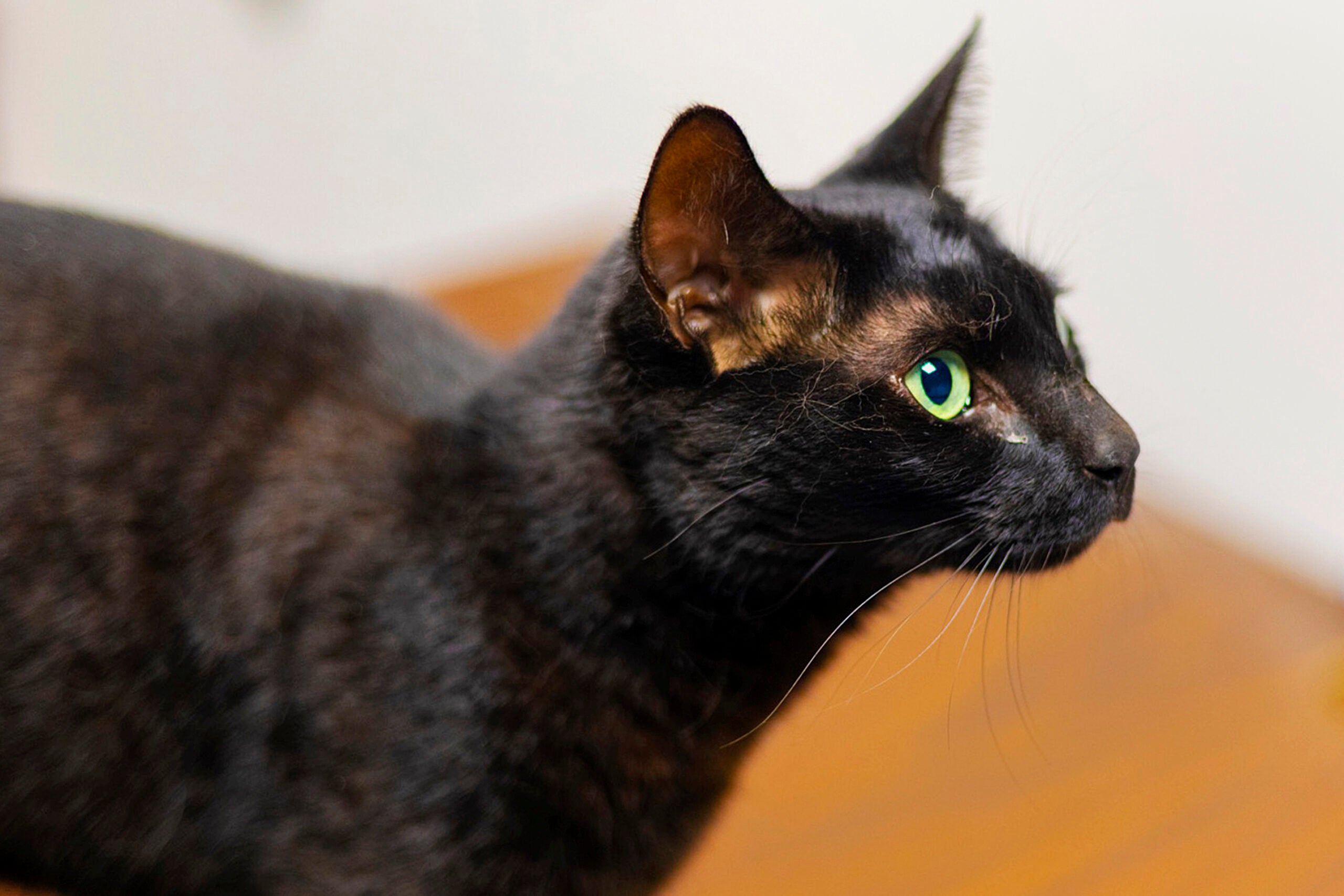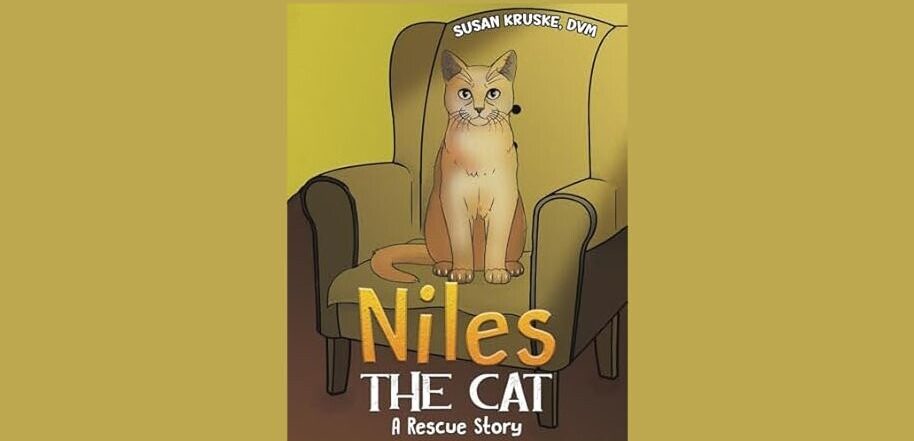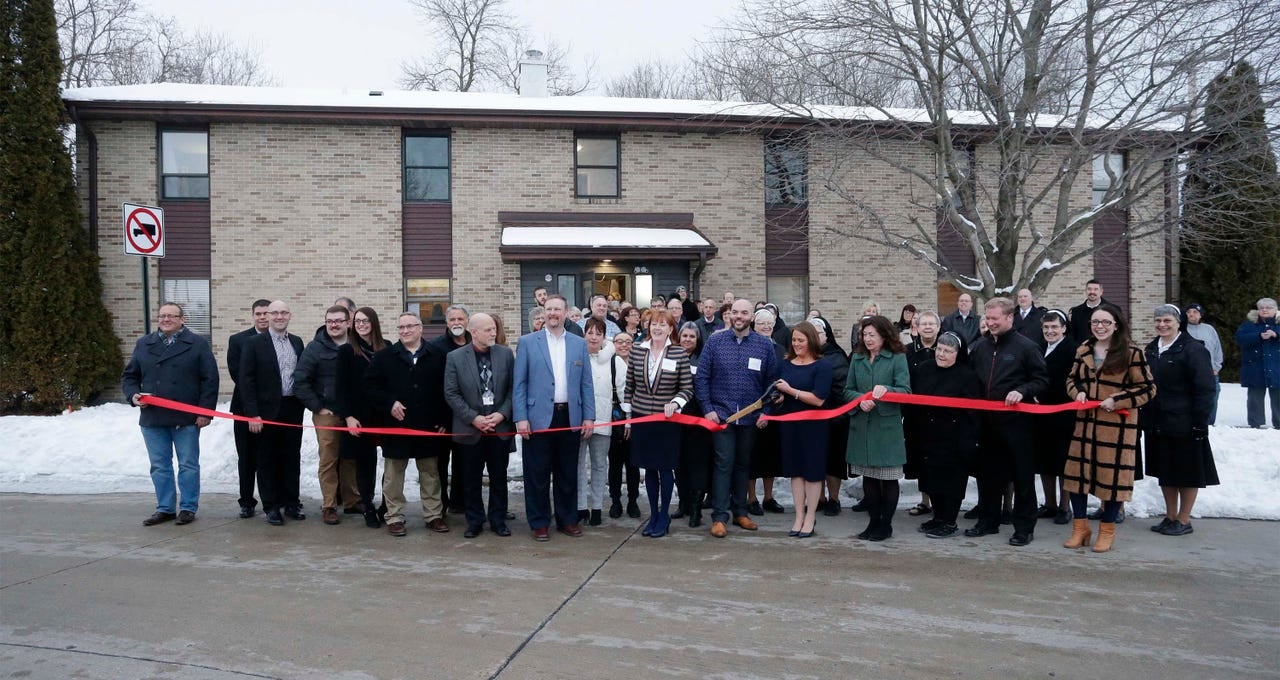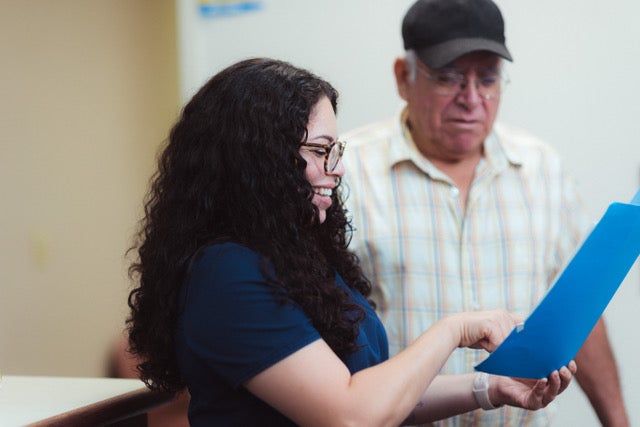When a tornado tore through Chetek in mid-May 2017, it left a miles-long trail of destruction in Barron County. The storm destroyed 50 mobile homes. Then-Gov. Scott Walker directed state agencies and the Wisconsin National Guard to aid the people displaced by the storm.
Angie Ruppel was working as a veterinarian in Cumberland when the tornado hit. One of her clients was rescuing homeless cats living in Chetek, so Ruppel decided to spay and neuter the cats during her lunch break.
“It surprised me how much I enjoyed that,” Ruppel said, “and how it fulfilled what I thought of my career. And so after that, I decided that I wanted to do more.”
Stay informed on the latest news
Sign up for WPR’s email newsletter.
After all of the Chetek cats found homes, Ruppel spent her days off traveling to shelters in Ashland, Superior, Lady Smith and Mondovi. There, she spayed and neutered the cats at the shelter and other cats in the communities.
That’s how Ruppel’s Purple Cat Mobile Veterinary Clinic began.
In order to reach rural cats, Ruppel decided to transform a trailer into a mobile surgery unit hauled behind her family’s Suburban. She installed windows, a heater and stainless steel counters.
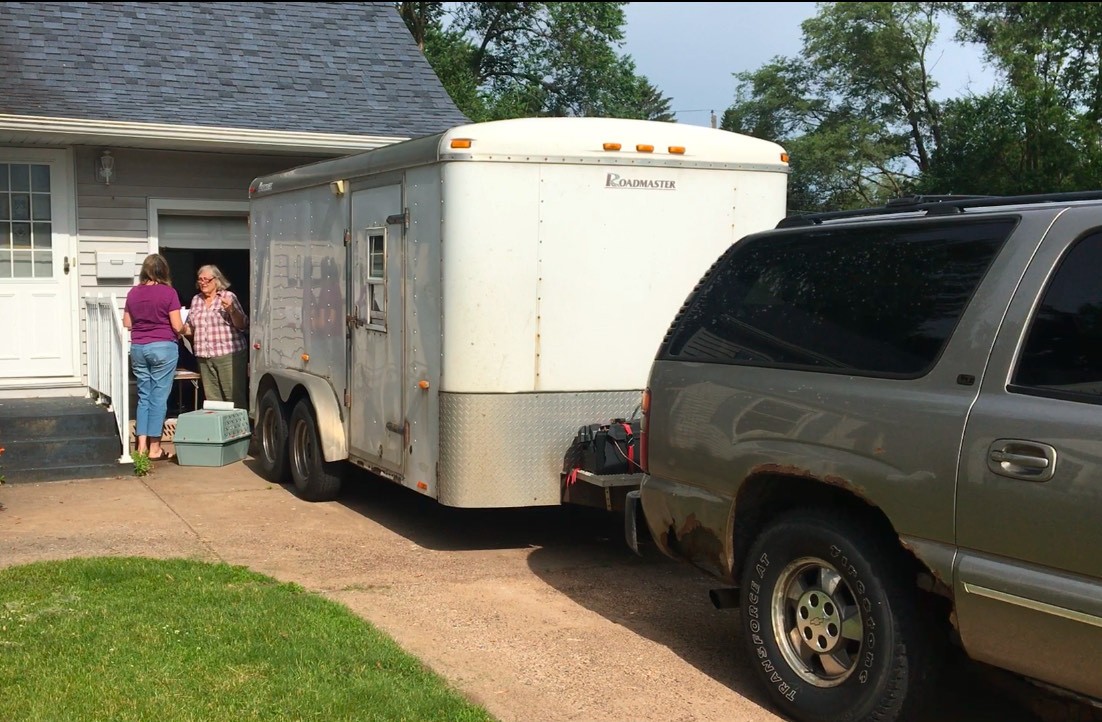
“After COVID happened, my services were so busy,” Ruppel said. “I was doing it out of my driveway, in that trailer, and so many people were coming that needed surgery. They were driving over two hours from Minnesota (and) northern Wisconsin.”
Today, Ruppel has two permanent locations in Baldwin and Eau Claire. The clinic is able to offer the surgeries at a lower cost because they’re efficient, Ruppel said. Because the team’s highly specialized, they’re able to do more surgeries in a given time for a lower cost.
Ruppel said she and her team have spayed and neutered more than 40,000 cats in six years. Yet, she knows she still has work to do.
“As far as the population as a whole, in Wisconsin, we must be making an impact,” Ruppel said. “But there’s so many cats out there. You can just have one farm that might have 100 cats on it.”
Ruppel answered questions about spaying and neutering cats on WPR’s “The Larry Meiller Show.“
The following interview was edited for brevity and clarity.
Larry Meiller: Why is it important that cats be neutered and spayed?
Angie Ruppel: The biggest reason why I do it is because we see so many unwanted litters of kittens. When I was in Cumberland at the Northern Lake Veterinary Clinic, I would go out to the farms and there would be so many cats and kittens running around.
They were often sick with conjunctivitis and other respiratory infections. It broke my heart. By spaying and neutering, we can prevent those unwanted litters and really make cats healthier in the long run.
LM: How old does your cat need to be to be spayed or neutered? And then on the other end, when is it too old?
AR: We want the kitten to have had all of their kitten shots and we want their immune system to be pretty mature. So, we do recommend 6 months of age for the pet cat. That way, the surgery will have a smaller chance of complications.
As far as if it’s too old, preferably we want them to be less than 7 years of age. Once they’re past 7 years, they’re considered senior cats. They can have a higher risk of complications.
However, that doesn’t mean an older cat shouldn’t be spayed or neutered. We still absolutely want them spayed or neutered. A senior cat should be taken to a full-service veterinary clinic, where they do the pre-surgical blood work. They have more in depth monitors to make it a safer surgery.
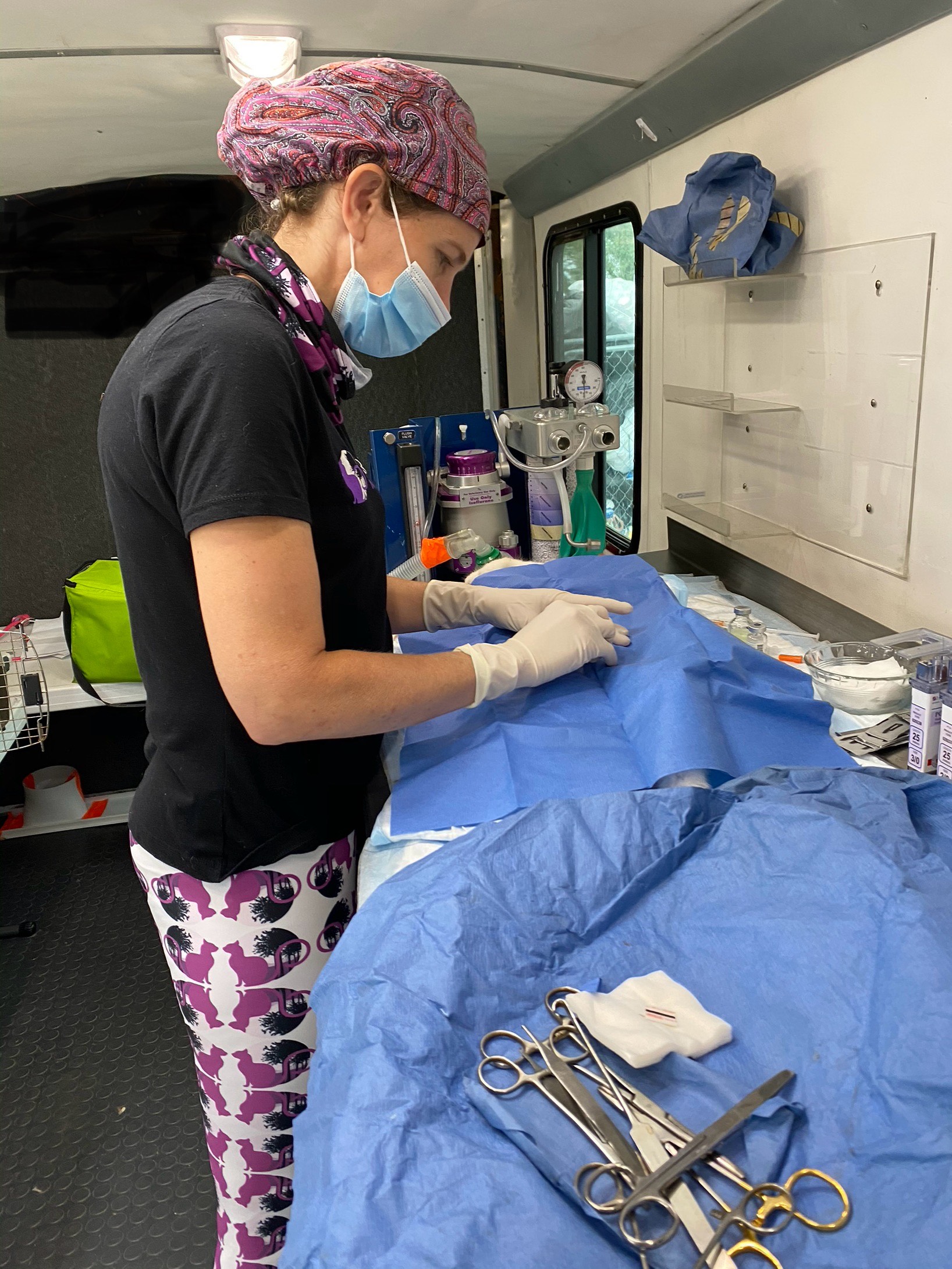
LM: What kind of post-surgery care does a cat require?
AR: Usually not very much. Clients always ask about putting a recovery cone or a surgical body suit on their cat, but it’s pretty uncommon for the cats to be licking after surgery.
We don’t want the cats to run around. We don’t want them climbing the curtains and jumping off, because that can disturb the sutures, cause more pain and potentially lead to bleeding. We want them to be quiet for about a week.
But having said that, I’ve operated on many farm cats that go back out the very next day and live their regular life. It’s pretty rare to have a complication from too much activity after the surgery.
LM: I’ve heard some people say that obesity can be a problem after a spay or neuter. How accurate is that? And how do we prevent it?
AR: That’s true for cats, and dogs, too. Their hormones change after you remove the ovaries, and so they are prone to obesity and gaining weight. Not only does their metabolism slow, but they actually feel more hungry. It’s an awful cycle.
The only thing we can say is just feed them less. You can’t free-feed them. You have to meal-feed them and watch their intake and weight. And if they are gaining weight, you just have to reduce their food.
